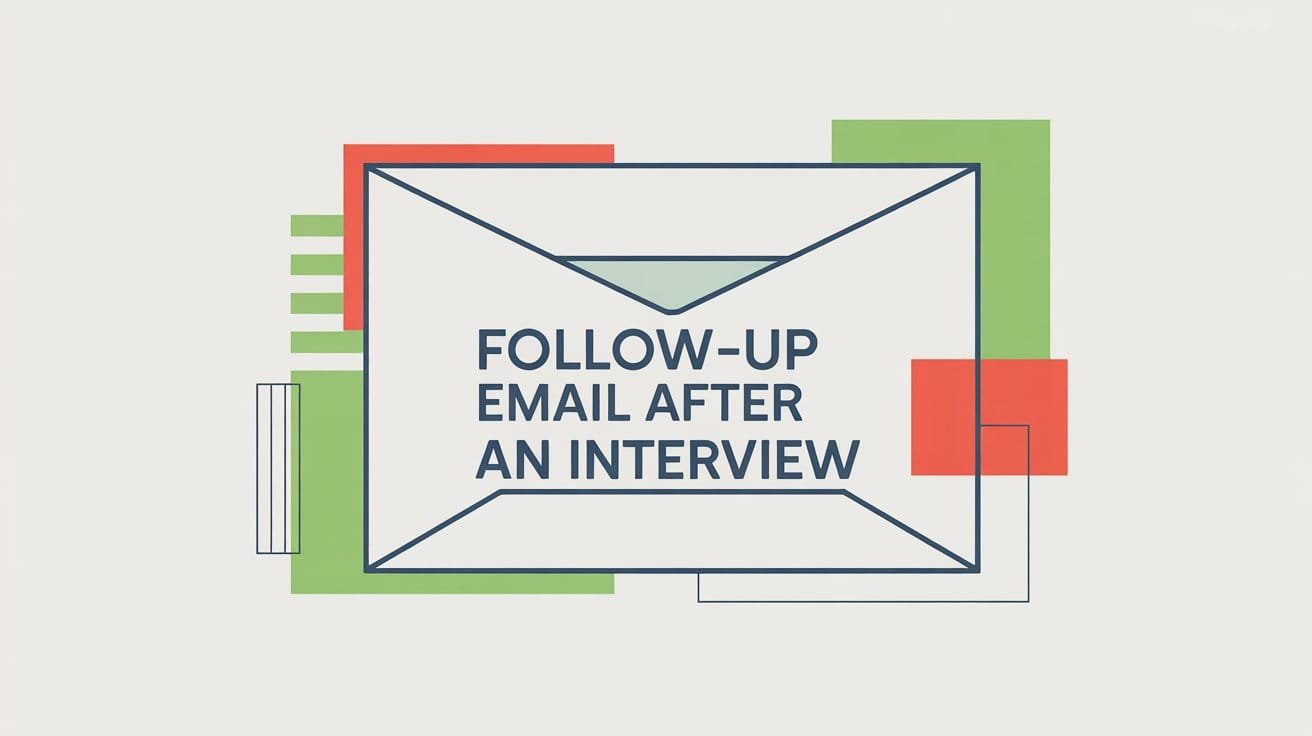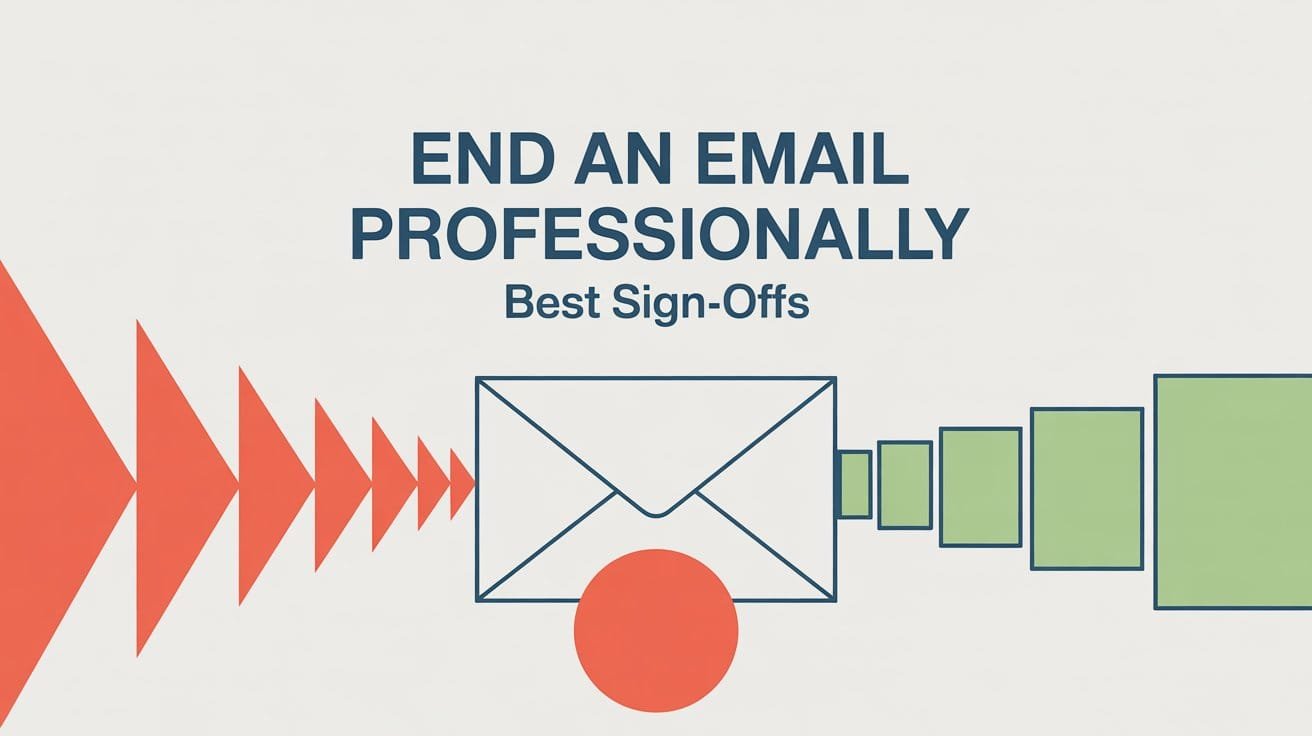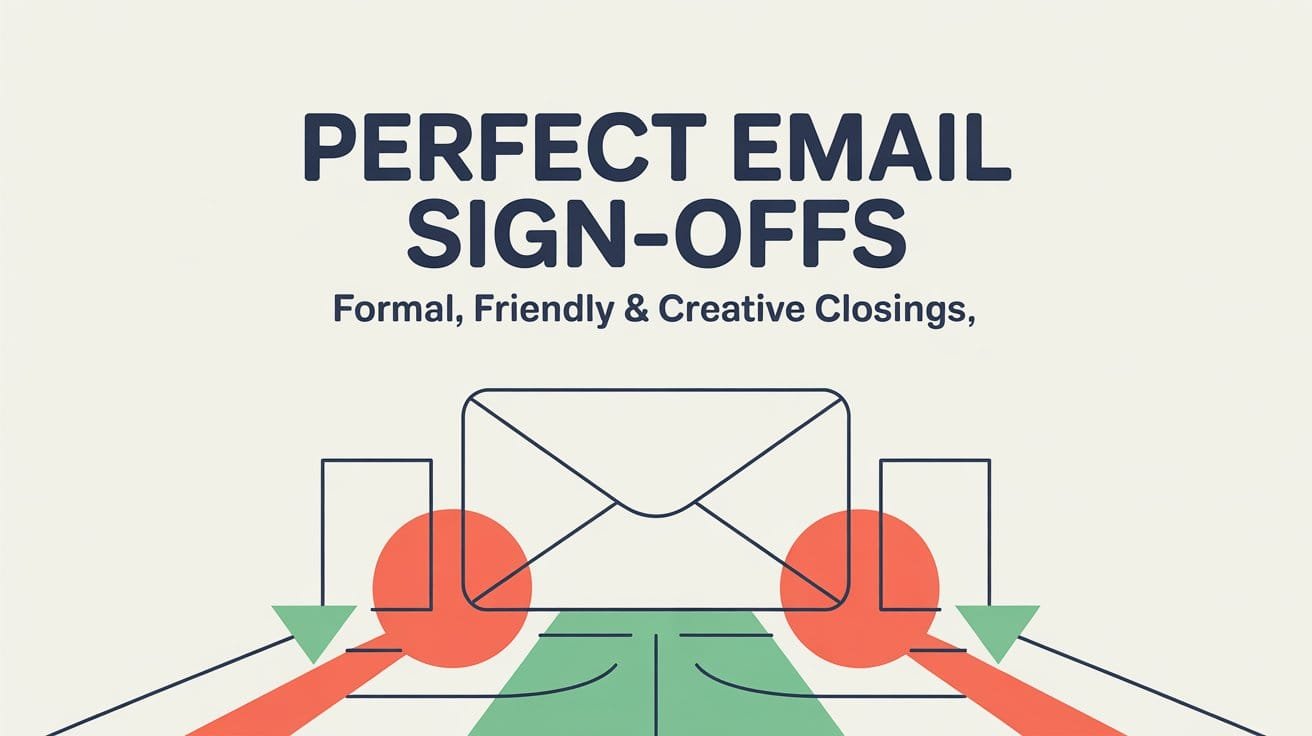You’ve completed the interview—now what? While it might feel like your work is done, sending a follow-up email is a key part of the process that many candidates overlook. A thoughtful message sent after your interview helps you express appreciation, reinforce your interest in the role, and keep you top of mind with the hiring team.
In this guide, you’ll learn how to write a follow-up email after an interview that sounds professional, polite, and confident. We’ll cover when to send it, how to structure it, and what to include. Also, you’ll find templates that you can customize for different situations, from phone interviews to panel discussions.
Why Send a Follow-Up Email After an Interview?
A follow-up email is more than a formality. It’s a professional step that can help you stand out after an interview. While not every candidate sends one, those who do often leave a stronger, more lasting impression.
It Shows Appreciation
Interviewers invest time to learn about you. A simple thank-you message shows you value their time and effort. It’s a respectful gesture that reinforces your professionalism.
It Reinforces Your Interest
Following up lets you restate your enthusiasm for the role. It’s an opportunity to remind the interviewer that you’re not just qualified, you’re genuinely interested.
Example line:
“I enjoyed learning more about the role and the team, and I’m even more excited about the opportunity to contribute.”
It Helps You Stand Out
In competitive hiring processes, small steps matter. A well-written follow-up email can set you apart from other candidates who may not follow up, or may do it poorly.
When to Send a Follow-Up Email After an Interview
Timing matters almost as much as the message itself. Sending your follow-up too late might make you seem uninterested, too early, and it could feel rushed. Here’s how to time it right depending on the type of interview.
Within 24 Hours Is Best
The ideal window for sending a follow-up email is within one business day after your interview. It shows you’re prompt, organized, and respectful of the interviewer’s time.
Adjust for Interview Type
- Phone Interview:
Send a short thank-you and follow-up within a few hours or by the end of the same day.
Why? It’s often the first step, and decisions may move quickly. - In-Person or Video Interview:
Send your follow-up within 24 hours. Include specific references from your conversation. - Panel Interview (Multiple Interviewers):
Ideally, send a brief personalized message to each person you spoke with within the next day.
Second or Final Interviews
Even if it’s your second or third meeting with the same person, send a follow-up. A quick message reinforces your interest and keeps the connection strong as decisions are being made.
Crafting the Subject Line for The Follow-Up
The subject line is the first thing your recipient sees, and a vague or generic one can cause your email to be overlooked. A good follow-up subject line should be clear, relevant, and professional.
What Makes a Good Subject Line?
- Mentions the position or interview
- Includes your name (optional, but helpful)
- Sounds polite and to the point
Examples of Effective Subject Lines
- Thank You – [Your Name], [Position Title] Interview
- Follow-Up on [Position Title] Interview – [Your Name]
- Appreciation for the [Job Title] Interview
- Following Up – [Your Name], [Date of Interview]
- Grateful for the Interview Opportunity
Avoid vague phrases like “Just Checking In” or “Quick Question”—they don’t tell the reader what to expect and may get skipped.
Structuring the Follow-Up Email
A follow-up email after an interview doesn’t need to be long, but it should be thoughtful and well-organized. Here’s a simple structure that works in most situations:
Greeting
Use the interviewer’s name and appropriate title. If you interviewed with multiple people, send each a personalized version if possible.
Example:
Dear Ms. Chen,
Opening Paragraph – Say Thank You
Start by thanking the interviewer for their time and the opportunity to learn more about the role.
Example:
Thank you for taking the time to speak with me yesterday about the Marketing Assistant position. I appreciated the chance to learn more about your team and the exciting projects you’re working on.
Body Paragraph – Reiterate Interest + Key Fit
Briefly highlight one or two things you enjoyed from the conversation and how your experience aligns with the role.
Example:
Our discussion about the upcoming product launch really caught my interest, especially your approach to content strategy. I believe my background in digital marketing and experience leading campaign rollouts would allow me to contribute meaningfully to your goals.
Closing Paragraph – Offer and Express Enthusiasm
Let them know you’re happy to provide additional information and that you’re looking forward to the next steps.
Example:
Please don’t hesitate to reach out if you need anything further from my side. I remain very interested in the position and hope to have the opportunity to join your team.
Sign-Off and Signature
Close with a polite sign-off and include your full name and contact details (if not already included below your name).
Example:
Best regards,
Ava Johnson
ava.johnson@email.com
(555) 123-4567
Tips for Writing an Effective Follow-Up Email
Even a short follow-up email can leave a strong impression—if it’s written well. These tips will help you refine your message so it’s professional, clear, and timely.
Keep It Brief and Focused
Hiring managers often receive dozens of emails a day. Stick to 2–3 short paragraphs and avoid repeating your entire résumé.
Make It Personal (Not Generic)
Mention something specific from your interview, like a project, question, or topic you discussed. This shows the email was written just for them.
Example:
“I especially enjoyed learning about your plans to expand the brand’s reach through short-form video.”
Proofread Before Sending
Typos or grammar mistakes can make even the best message look rushed. Take a minute to read your email out loud before hitting “send.”
Match the Tone
Keep your tone professional and warm. Avoid sounding too casual, even if the interview felt relaxed.
Time It Strategically
Send your email during working hours, ideally mid-morning or early afternoon, when inboxes are less crowded.
Sample Follow-Up Email Templates
Use these ready-made templates to craft your follow-up emails based on the type of interview. You can personalize them by adding specific references to your conversation or the job role.
General Follow-Up Email (After Any Interview)
Subject: Thank You – Jordan Lee, Project Coordinator Interview
Dear Ms. Nguyen,
Thank you again for the opportunity to interview for the Project Coordinator position. I appreciated our conversation and learning more about your team’s goals for the upcoming quarter.
I remain very interested in the role and believe my background in workflow optimization would allow me to contribute meaningfully. Please let me know if I can provide any additional information.
Best regards,
Jordan Lee
jordan.lee@email.com
Related: How to Write a Second Follow-Up Email
Phone Interview Follow-Up
Subject: Follow-Up on Phone Interview – Sales Associate Position
Hi Mr. Alvarez,
It was great speaking with you today about the Sales Associate opening. I enjoyed our conversation and learning more about your team’s values and customer-first approach.
Thank you for your time, and I look forward to the next steps. Please feel free to reach out if you need anything further from me.
Sincerely,
Tina Morales
In-Person Interview Follow-Up
Subject: Thank You – In-Person Interview, UX Designer
Dear Ms. Shah,
Thank you for taking the time to meet with me in person yesterday. I appreciated the warm welcome and the chance to explore how the design team works at Bluepeak Solutions.
Our discussion confirmed my interest in the UX Designer role, especially the user research focus your team is building on. I’d be excited to contribute my experience with accessibility-driven design.
Best,
Liam Grant
Related: Follow-Up Email After Meeting (With Examples and Tips)
Panel Interview Follow-Up (Group Email Version)
Subject: Thank You – Group Interview for Marketing Analyst
Dear Team,
Thank you all for the opportunity to speak with you about the Marketing Analyst role. I enjoyed meeting each of you and appreciated the chance to learn about your work and team dynamics.
The role sounds both challenging and exciting, and I’d be honored to be considered further. Please don’t hesitate to reach out if you need any follow-up materials from me.
Warm regards,
Natalie Wong
Related: Follow-Up Email After No Response (With Templates)
Common Mistakes to Avoid
Even with the best intentions, certain missteps can weaken your follow-up email or leave a less-than-professional impression. Here’s what to watch out for:
Waiting Too Long to Follow Up
Delaying your email by several days, or worse, forgetting altogether, can suggest disinterest. Aim to follow up within 24 hours while the conversation is still fresh.
Sending a Generic Message
A vague or copied-and-pasted message doesn’t stand out. Avoid overused phrases like “Thanks for the interview. I hope to hear back soon.” Instead, refer to something specific from your interview.
Better:
“I appreciated your insights on how the product team collaborates across departments.”
Being Too Aggressive
Avoid pushy language like “Please respond as soon as possible” or “I’m still waiting for an answer.” Your tone should be polite and professional, not demanding.
Overexplaining or Repeating Your Resume
Your follow-up email isn’t the place to retell your entire work history. Focus on one or two points that reinforce your fit without sounding like a second pitch.
Neglecting to Proofread
Typos and formatting issues can undermine your professionalism. Review your email carefully before sending, especially names and job titles.
Conclusion
A follow-up email after an interview is a simple step, but one that can leave a lasting impression. It shows professionalism, appreciation, and genuine interest in the role. When written well, it can reinforce your qualifications and keep you top of mind during the hiring process.
Use the structure, tips, and templates from this guide to write a message that’s clear, timely, and tailored to the conversation you had. A thoughtful follow-up won’t guarantee the job, but it might just set you apart from the rest.



